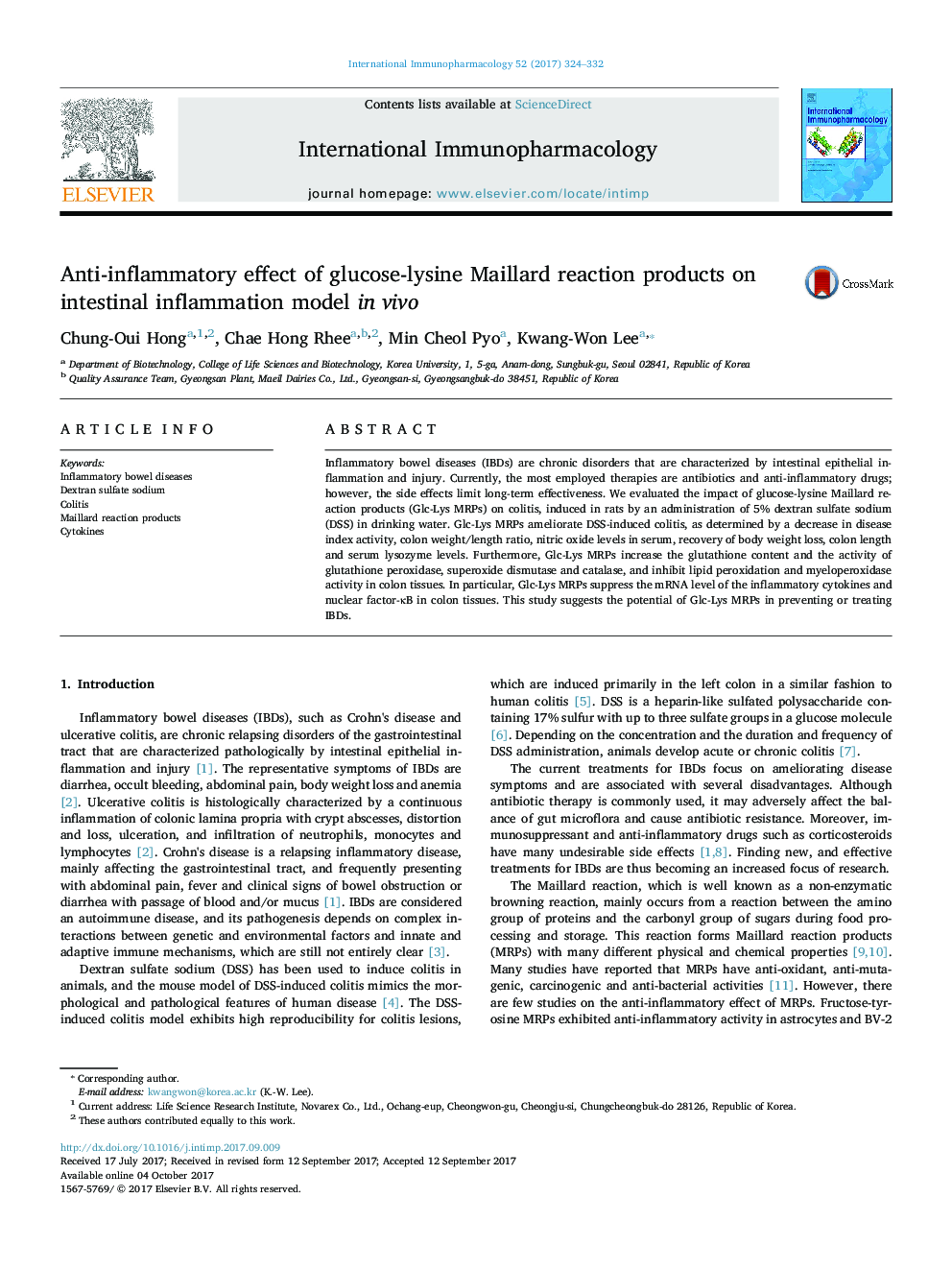| کد مقاله | کد نشریه | سال انتشار | مقاله انگلیسی | نسخه تمام متن |
|---|---|---|---|---|
| 5555278 | 1559738 | 2017 | 9 صفحه PDF | دانلود رایگان |
- Glucose-lysine Maillard reaction products ameliorate DSS-induced colitis.
- Glc-Lys MRPs increase glutathione content and the antioxidant activities.
- Glc-Lys MRPs suppress the inflammatory cytokines and NF-κB in colon tissues.
- The potential of Glc-Lys MRPs contribute to prevention or treatment of IBDs.
Inflammatory bowel diseases (IBDs) are chronic disorders that are characterized by intestinal epithelial inflammation and injury. Currently, the most employed therapies are antibiotics and anti-inflammatory drugs; however, the side effects limit long-term effectiveness. We evaluated the impact of glucose-lysine Maillard reaction products (Glc-Lys MRPs) on colitis, induced in rats by an administration of 5% dextran sulfate sodium (DSS) in drinking water. Glc-Lys MRPs ameliorate DSS-induced colitis, as determined by a decrease in disease index activity, colon weight/length ratio, nitric oxide levels in serum, recovery of body weight loss, colon length and serum lysozyme levels. Furthermore, Glc-Lys MRPs increase the glutathione content and the activity of glutathione peroxidase, superoxide dismutase and catalase, and inhibit lipid peroxidation and myeloperoxidase activity in colon tissues. In particular, Glc-Lys MRPs suppress the mRNA level of the inflammatory cytokines and nuclear factor-κB in colon tissues. This study suggests the potential of Glc-Lys MRPs in preventing or treating IBDs.
Journal: International Immunopharmacology - Volume 52, November 2017, Pages 324-332
